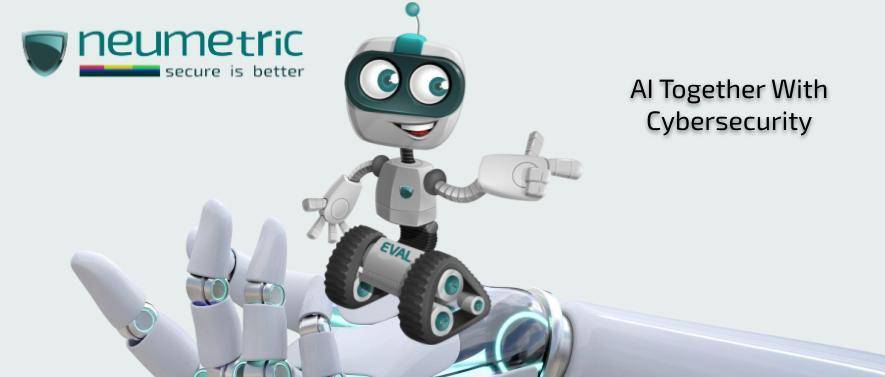Table of Contents
ToggleAI Together With Cybersecurity – Predictions By Experts
Introduction
Cybersecurity has been an issue for years and it continues to be one of the biggest threats to companies. The number of data breaches is increasing every year and even though many people think that AI will help solve this problem, it might not be enough. In the current pandemic situation, cybersecurity is at an inflection point, where machine learning and advances in Artificial Intelligence are accelerating the technological process of cybersecurity. Real-time data and analytics have made it possible to build stronger business cases and drive higher adoption.
The cybersecurity experts at Neumetric believe that AI and machine learning will improve cybersecurity in the coming years. Let’s have a look at what experts have to say.
Cybersecurity and Artificial Intelligence
Artificial Intelligence [AI] is a technology that can be used for cybersecurity purposes. It has been used by many companies in the past few years and has helped them to secure their systems against cyber attacks. With the help of AI, it is possible to detect cyber attacks and predict threats of a breach before they actually happen. In addition, artificial intelligence can also be employed for protecting against cyber attacks as well as recovering from these incidents effectively if they occur anyway!
AI is a tool that can be used to improve cybersecurity. The benefits AI offers for cybersecurity include:
- Reduced time taken to find vulnerabilities in software
- Improved speed of detecting and responding to threats
- Improved accuracy in detecting threats
AI’s negative effects on cybersecurity
The positive effects of AI for cybersecurity can be appreciated by everyone. However, it is also important to understand the negative impacts that AI could have on security in the coming years.
One area where there is a lot of potential harm from AI-enhanced cyber attacks is in rogue actors using machine learning algorithms to automate their attacks and improve their success rate. This could include hackers who use machine learning to create sophisticated malware that evades detection by antivirus software and other security solutions, or even more insidious threats such as automated phishing campaigns that are targeted specifically at individuals based on their behaviour patterns and preferences revealed through social media accounts.
Another major threat posed by malicious use of AI will come in the form of “fake news” being created with the help of deep learning algorithms trained on existing media content (including audio/video) combined with artificial intelligence-powered natural language processing techniques. This would allow text-to-speech synthesis as well as image generation capabilities which would in turn allow fake news stories based on real events but written in an entirely different context than what actually occurred.
Utilisation of AI by Enemies
Cyber criminals will increase the use of AI to analyse defence mechanisms and replicate behavioural patterns to bypass security controls in order to leverage analytics and machine learning to hack into businesses. Cyber criminals may increase their use and sophistication of AI algorithms to analyse Organisations and customise the attacks to specific weak areas.
If you thought that AI was only used to hack into systems and analyse data for businesses, there are criminals who are utilising it for malicious purposes. Here are some of the ways in which AI can be used by cybercriminals:
- Creating botnets: A botnet is a collection of corrupted devices that have been hijacked by malware. These compromised computers then act as zombies, or remote-controlled computers, under the control of hackers. Hackers use these zombie machines to launch attacks on other targets or send spam messages in bulk. They can also use them to mine cryptocurrency by running mining scripts on the infected devices without their owners knowing about it.
- Creating malware: Malware refers to any piece of code that runs on a system with malicious intent—stealing user data or selling personal information on the Dark Web is just one example here! Malware can come in many forms—viruses, spyware, worms etc.—and they’re often created using Artificial Intelligence [AI]. For example: an AI model could be trained using large amounts of data from different types of malicious software so that it learns how each type behaves and then uses this knowledge when creating new ones!
Automate security operations processes using AI & ML:
With a shortage of security operations resources and the ever-increasing volume of data that many businesses are trying to work through, we are likely to see Organisations seeking out AI or Machine Learning capabilities to automate the security operations processes. While AI and machine learning will be used vastly to detect new threats, it still leaves businesses with the task of understanding the scope, severity, and veracity of that threat so as to inform an effective response. So with security operations becoming a big data problem, big data solutions will find their way.
AI’s Effects on Cybersecurity
As the use of AI increases, it will become an important part of cybersecurity. AI can be used to detect, prevent, and respond to cyber-attacks. AI can help create more secure networks. It will be able to identify and stop network intrusions before they occur. It also helps automate responses to threats based on past experience or by learning from other Organisations that have previously experienced similar attacks.
In addition, AI can help improve the speed of cybersecurity because it makes decisions faster than humans do—and often with better outcomes. A simple example is self-driving cars; they’re able to make split second decisions that are not always right but still keep us safe on the roads today!
Consumers are taking greater control of their data sharing and privacy. Over the past few years, we have experienced the biggest data and privacy breaches and due to this, many tech giants like Google, Apple, Facebook, and Amazon have beefed up their privacy controls so as to gain the trust back from customers. But now the tables have turned in favour of consumers. The tech giants will now be required to put privacy first to stay in the business. In the future, consumers will own their data, will selectively share it with third parties, and also get their data back after sharing.
Main Obstacles Issues with Cybersecurity Today
There are many obstacles to cybersecurity that we need to overcome. The most significant one is the lack of awareness among users, Organisations and government agencies. There are also many other issues that impede cybersecurity including lack of understanding in law enforcement agencies when it comes to cybercrime and lack of awareness among security researchers in general.
Limitations and Drawbacks of AI for Cybersecurity
AI, in the end, is not a silver bullet that will solve all of cybersecurity’s problems. AI has its limitations and drawbacks as well.
For example, AI cannot replace human intelligence or judgement. You need to have people who know what they are doing when it comes to building an AI solution for your Organisation. Also remember that machines are only as good as the data they have access to which means if you want your machine learning model trained properly then you need to have accurate input data on hand because otherwise with bad inputs it will produce bad outputs (and vice versa). So security professionals should always be wary about deploying an artificially intelligent solution without making sure that there aren’t any bugs in their code or any other potential issues with their technology stack.
Conclusion
The cybersecurity industry is an ever-changing landscape. With the rise of artificial intelligence, we have a lot to learn and consider in regards to cybersecurity. However, it’s clear that AI has the potential to be a force for good in this world by helping us identify threats faster and more efficiently than ever before. Cybersecurity experts at Neumetric bring a knowledgeable, insightful, and unique perspective about AI and machine learning and these pointers are sure to enlighten entities and improve cybersecurity.
Neumetric, a cybersecurity services, consulting & products Organization, can help you reduce your security cost without compromising your security posture. Our years of in-depth experience in handling security for Organizations of all sizes & in multiple industries make it easier for us to quickly execute cost-cutting activities that do not bring value to you, while you continue focusing on the Business objectives of the Organization.
FAQs
Can AI be used for cybersecurity?
AI can be used to improve the effectiveness of cybersecurity. AI can also help detect and prevent cyber attacks and predict their occurrence, which will help in reducing the risks associated with them.
How does AI relate to cybersecurity?
AI is a tool that can be used to improve cybersecurity. By using AI, you can identify threats and find vulnerabilities. You can also use it to identify patterns in your data and to make predictions about the future.
How AI can improve cybersecurity?
AI is a complex field that has been around for many years. The technology behind it has been evolving at a fast pace, and AI is now becoming more practical and useful. This means that it can be used in various fields like healthcare, self-driving cars and cybersecurity which makes it an attractive option for businesses who want to keep their data safe from being stolen or destroyed by hackers. It can analyse huge amounts of data in real time, making it possible for companies to detect threats early on before they become big problems.
Is cybersecurity better than AI?
There is no question that AI has a lot of potential in this field, but it’s not necessarily better than cybersecurity. In fact, both of these disciplines are important to understand and implement in your business. While cybersecurity is more focused on protecting data from external threats, AI will help you detect intrusions faster than ever before.
Together they make an incredibly powerful duo—one cannot exist without the other! This means that if you have a strong AI system in place but no cybersecurity measures then it will be easy for hackers to bypass your defences and get access to sensitive information about your company or customers. The same applies if you have good perimeter protection but poor internal controls.





